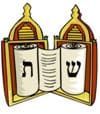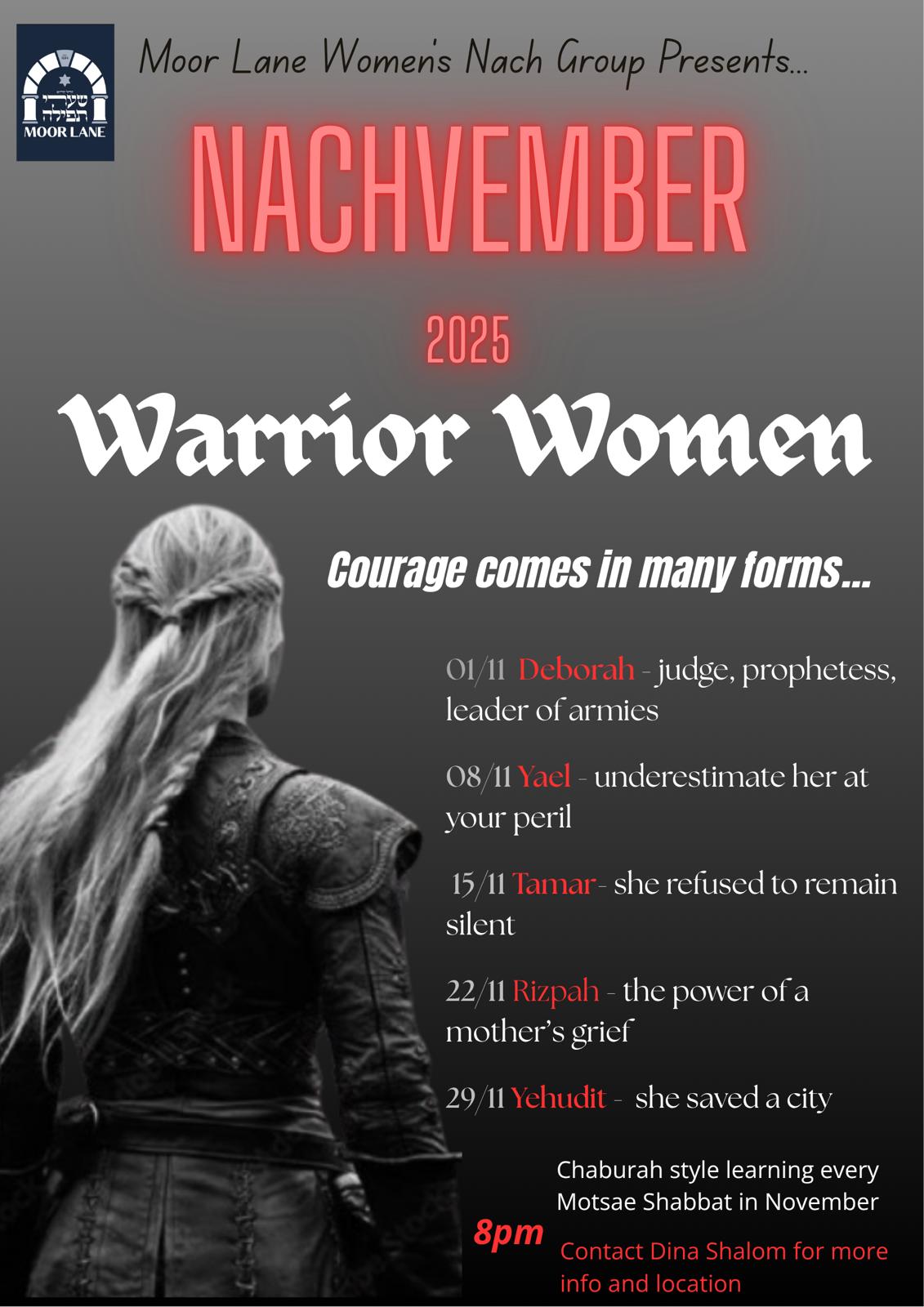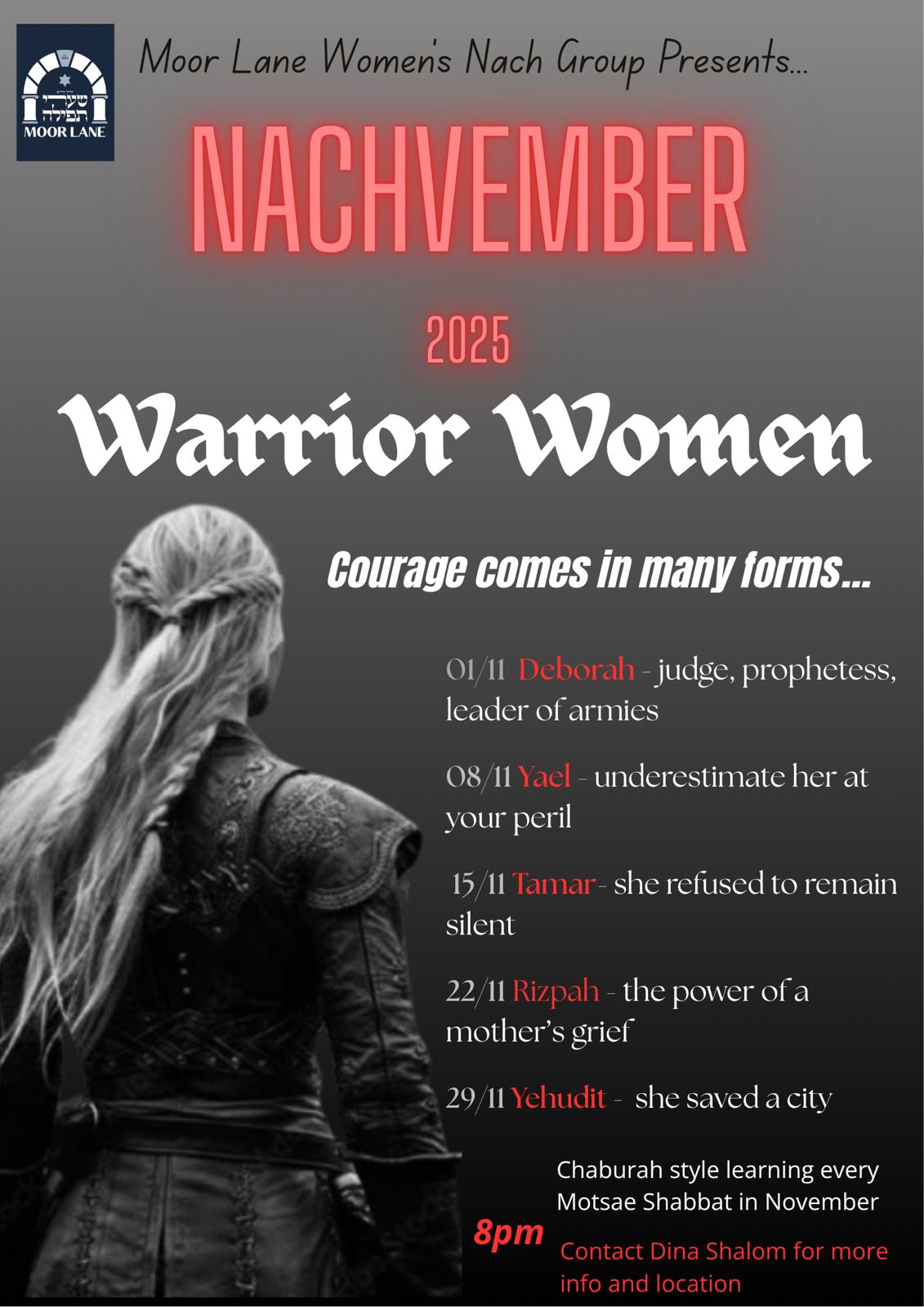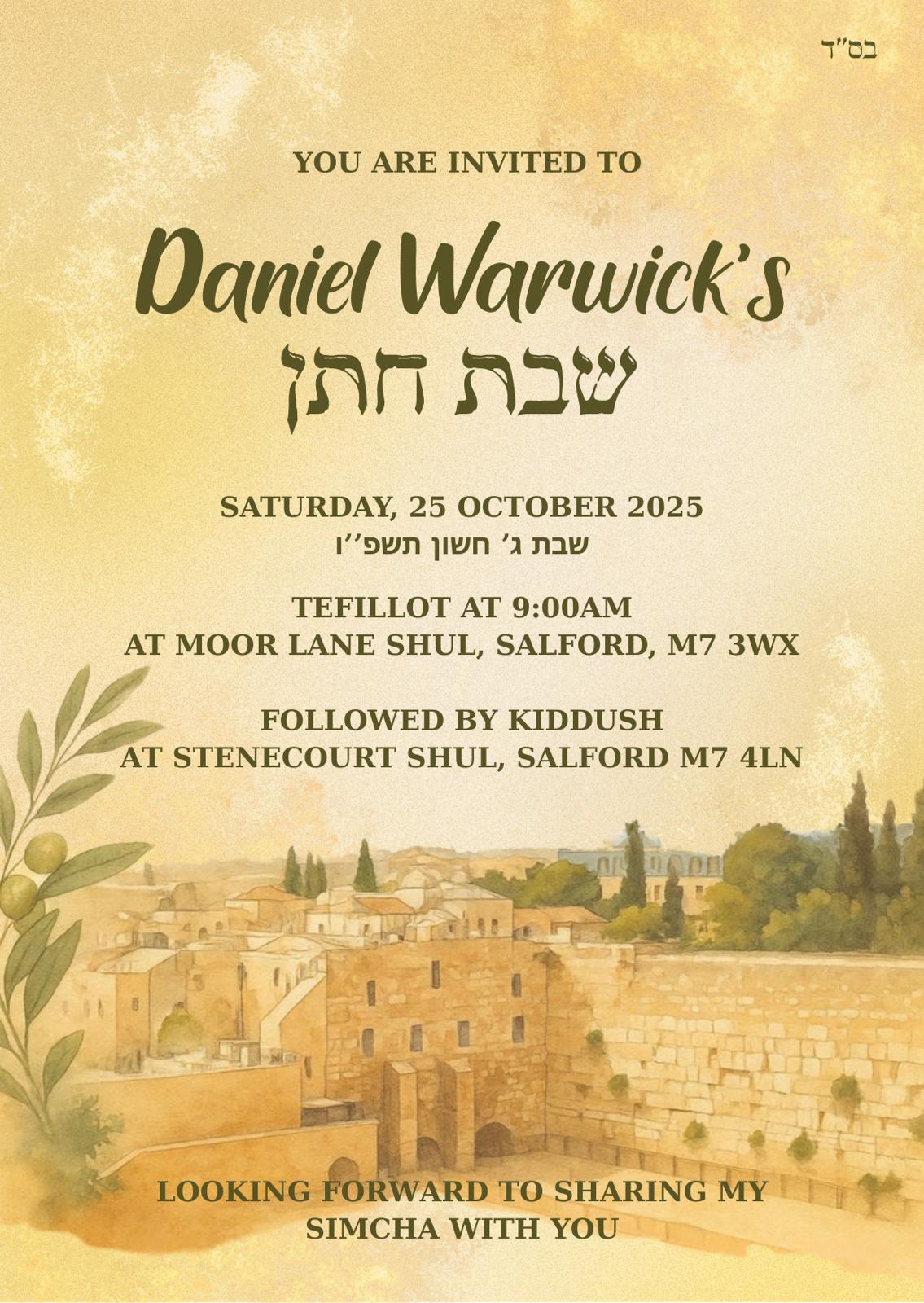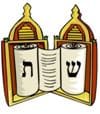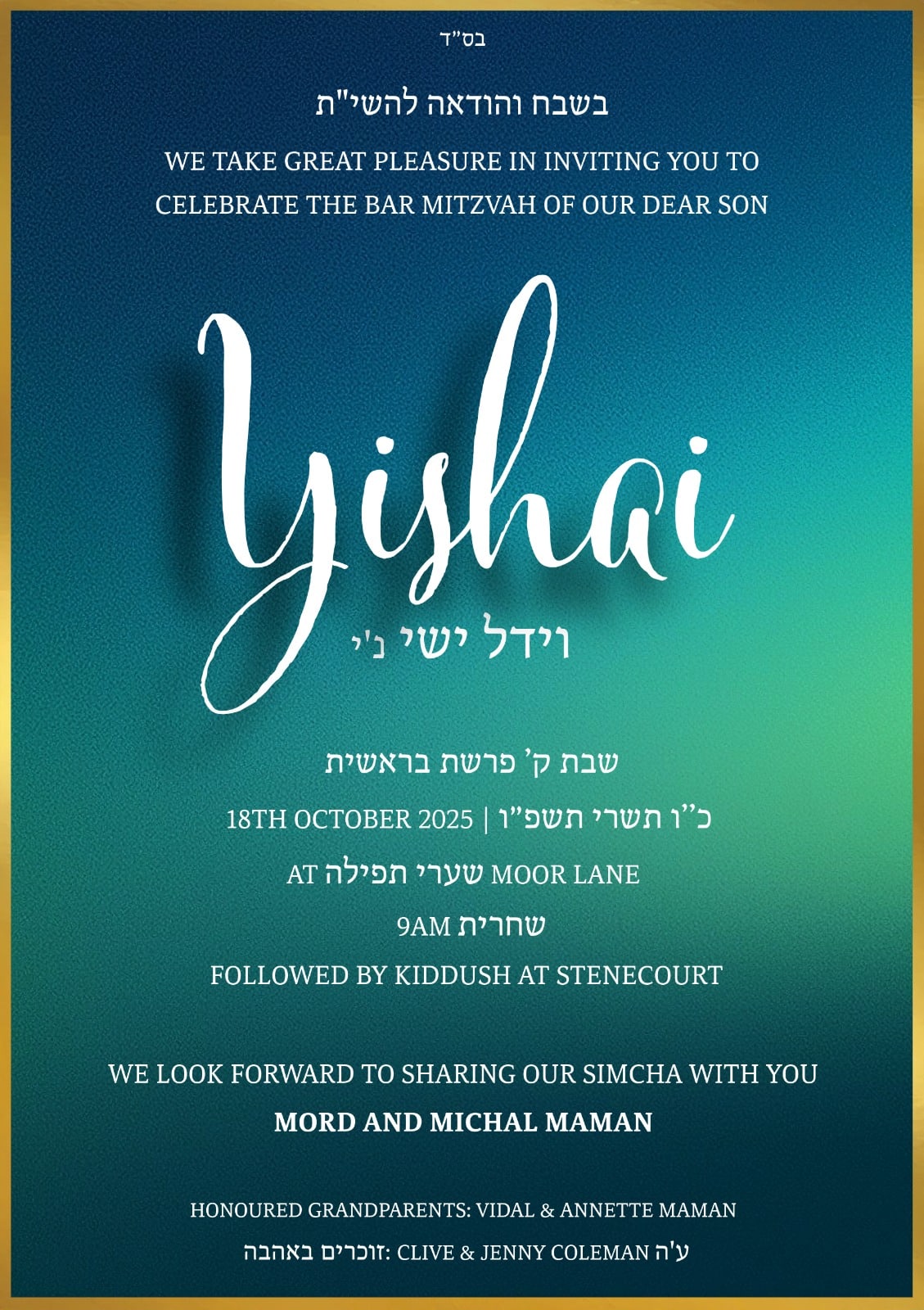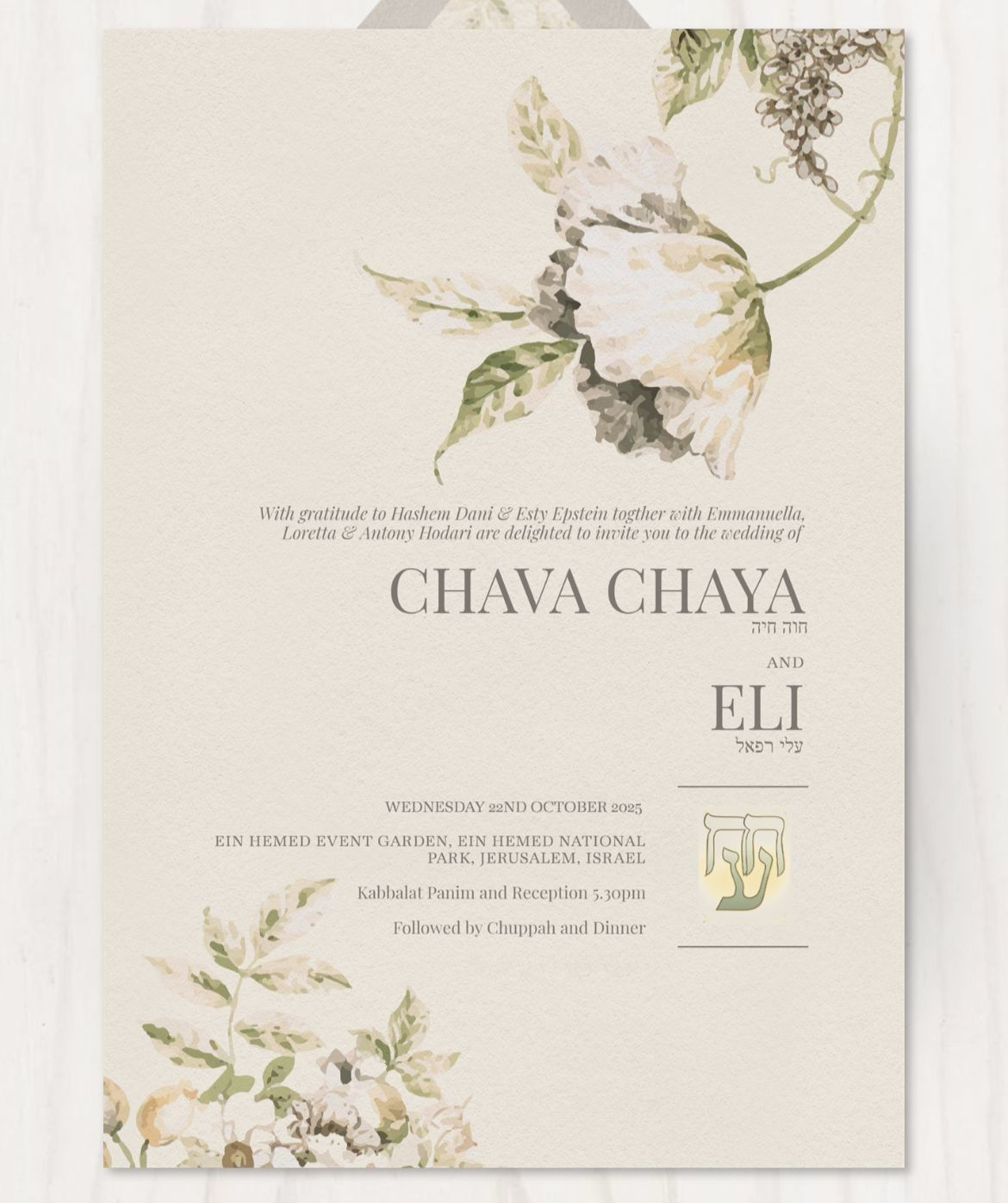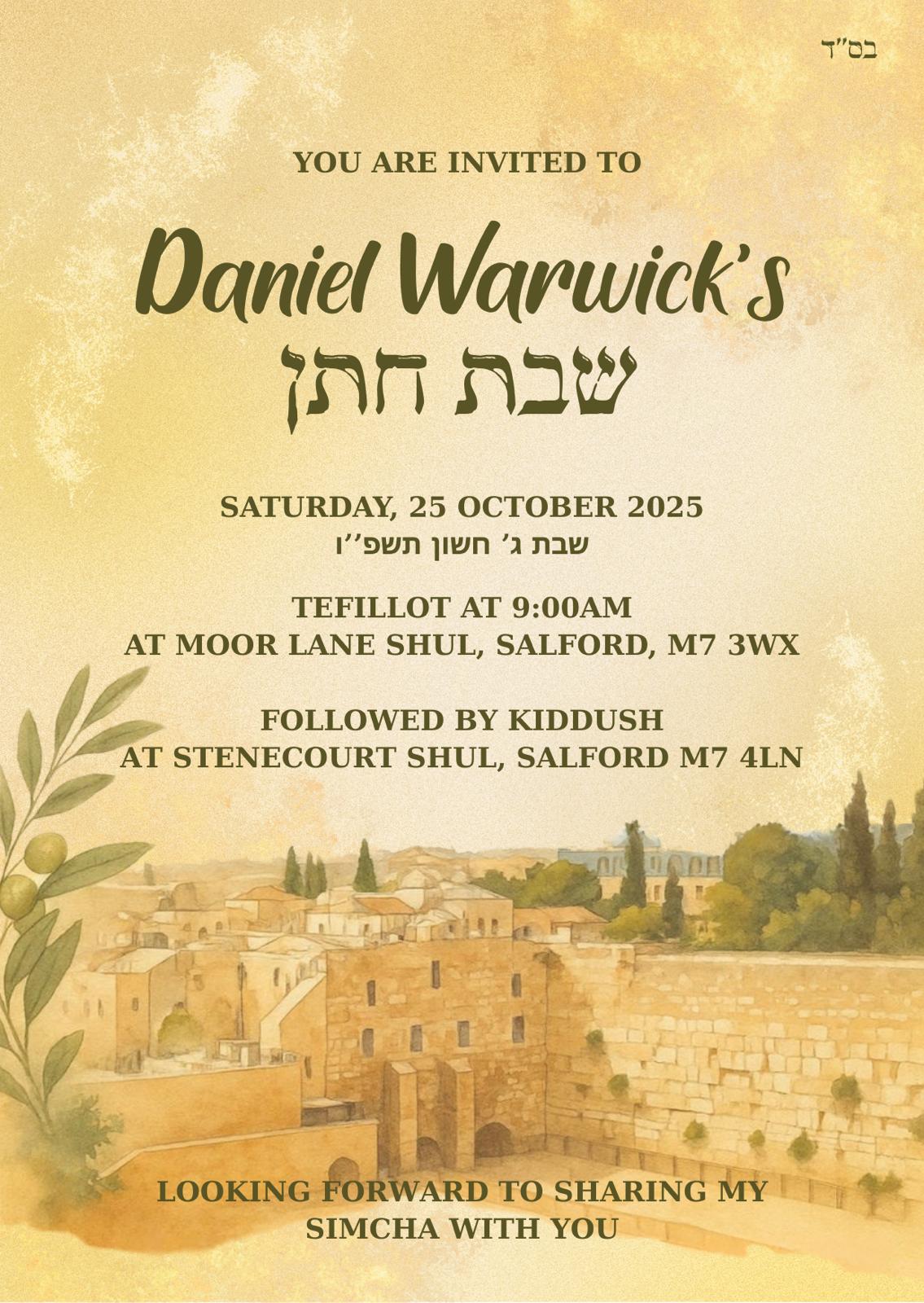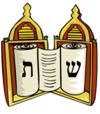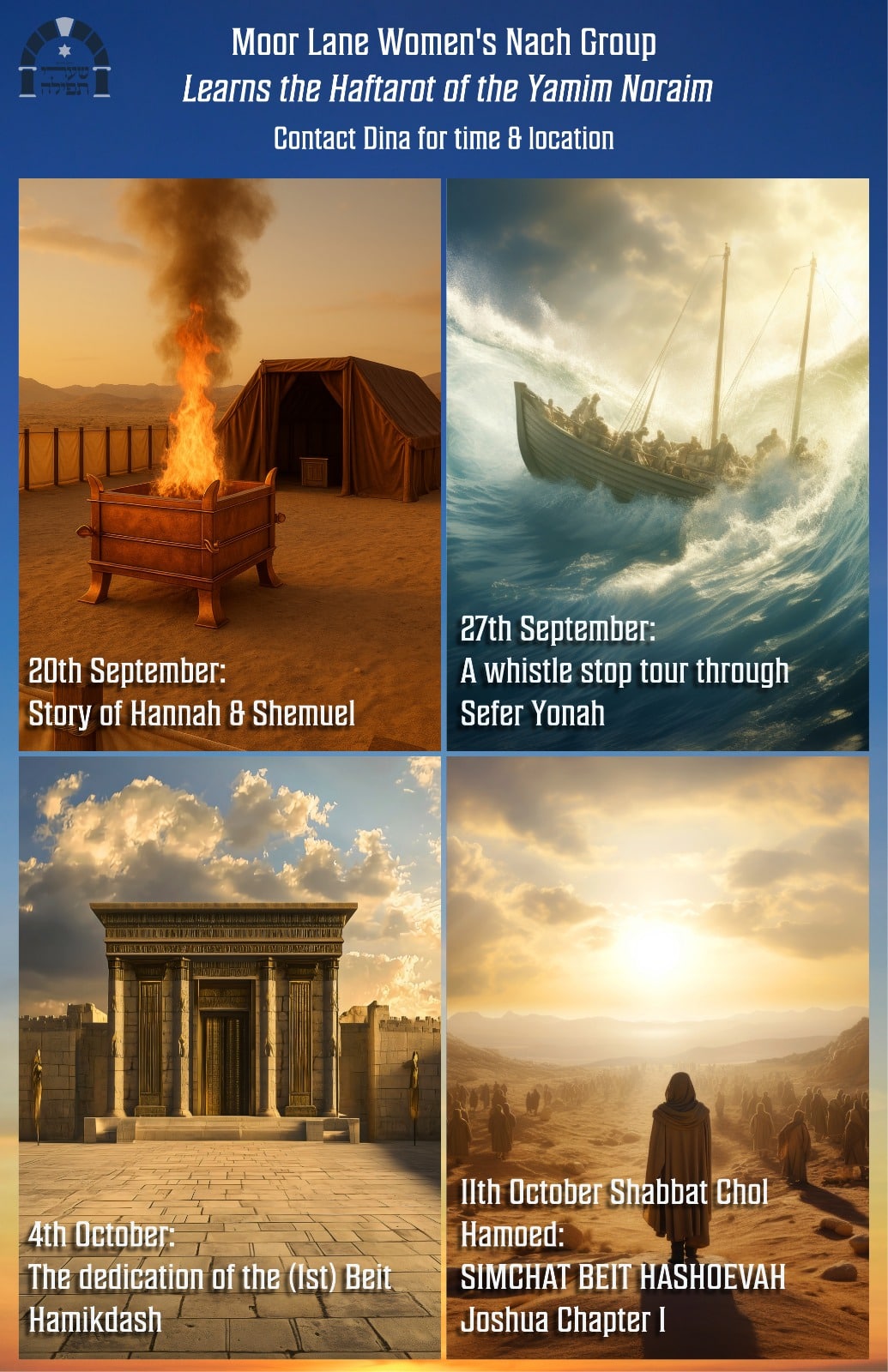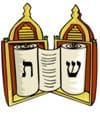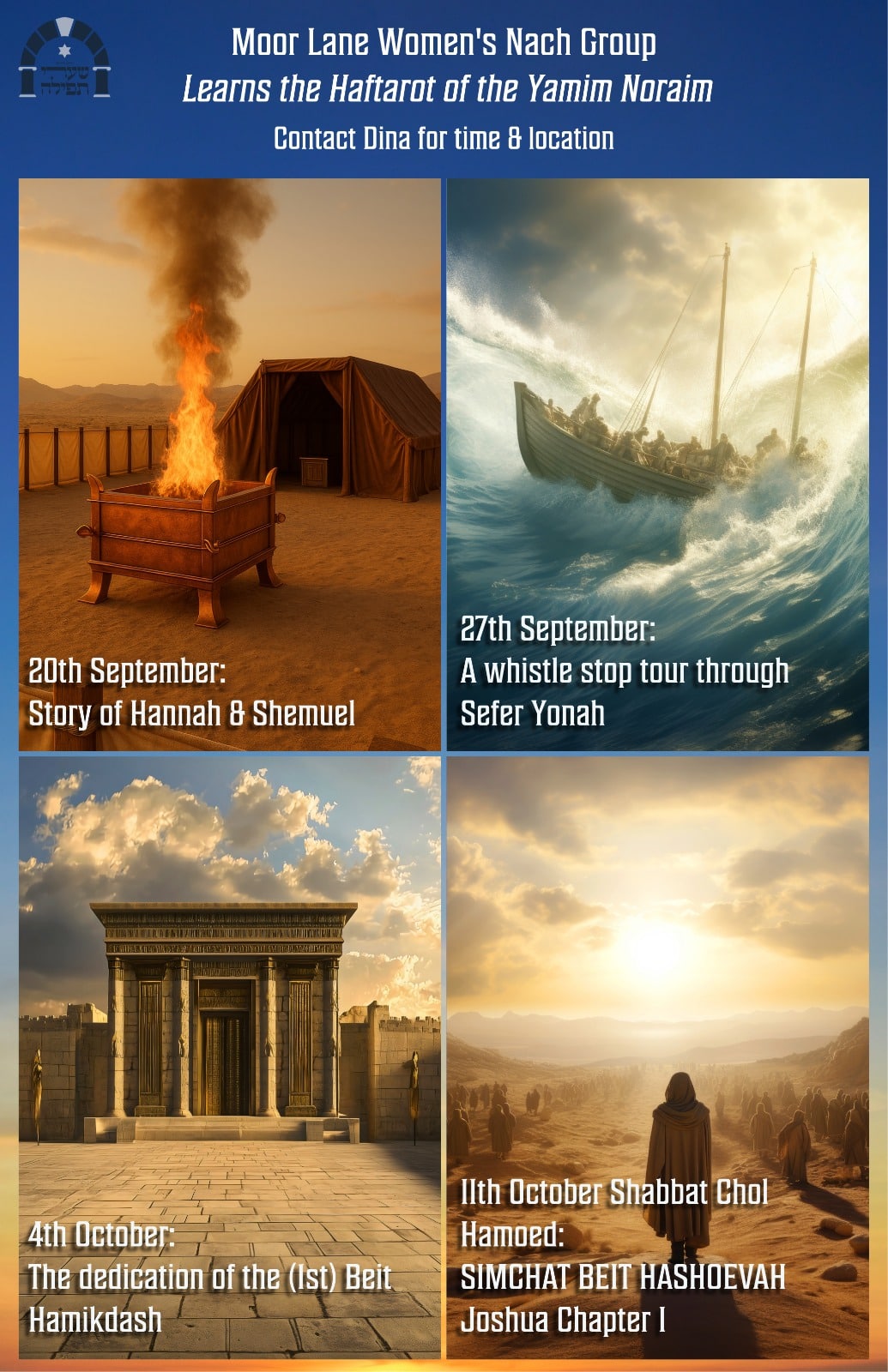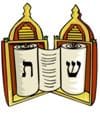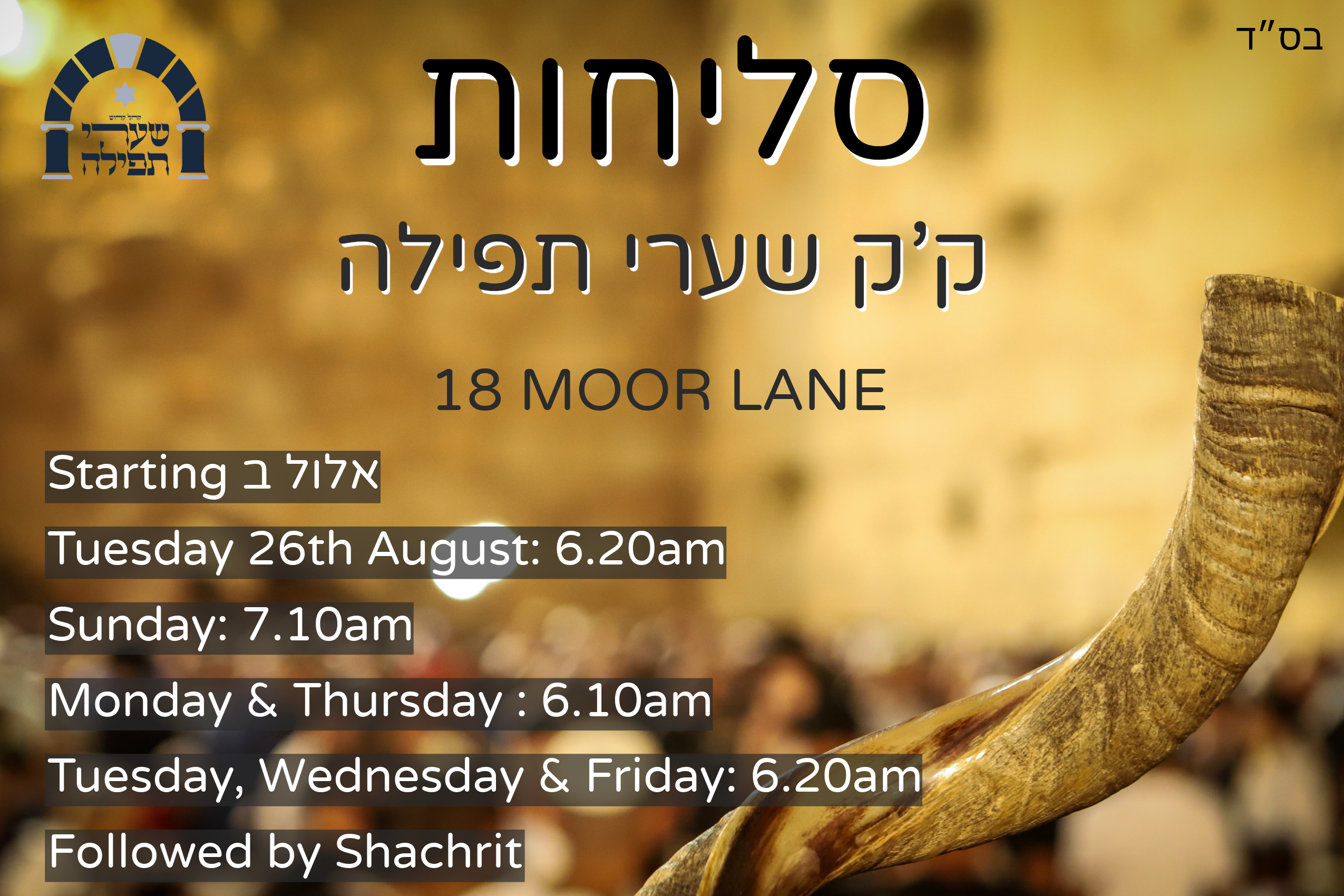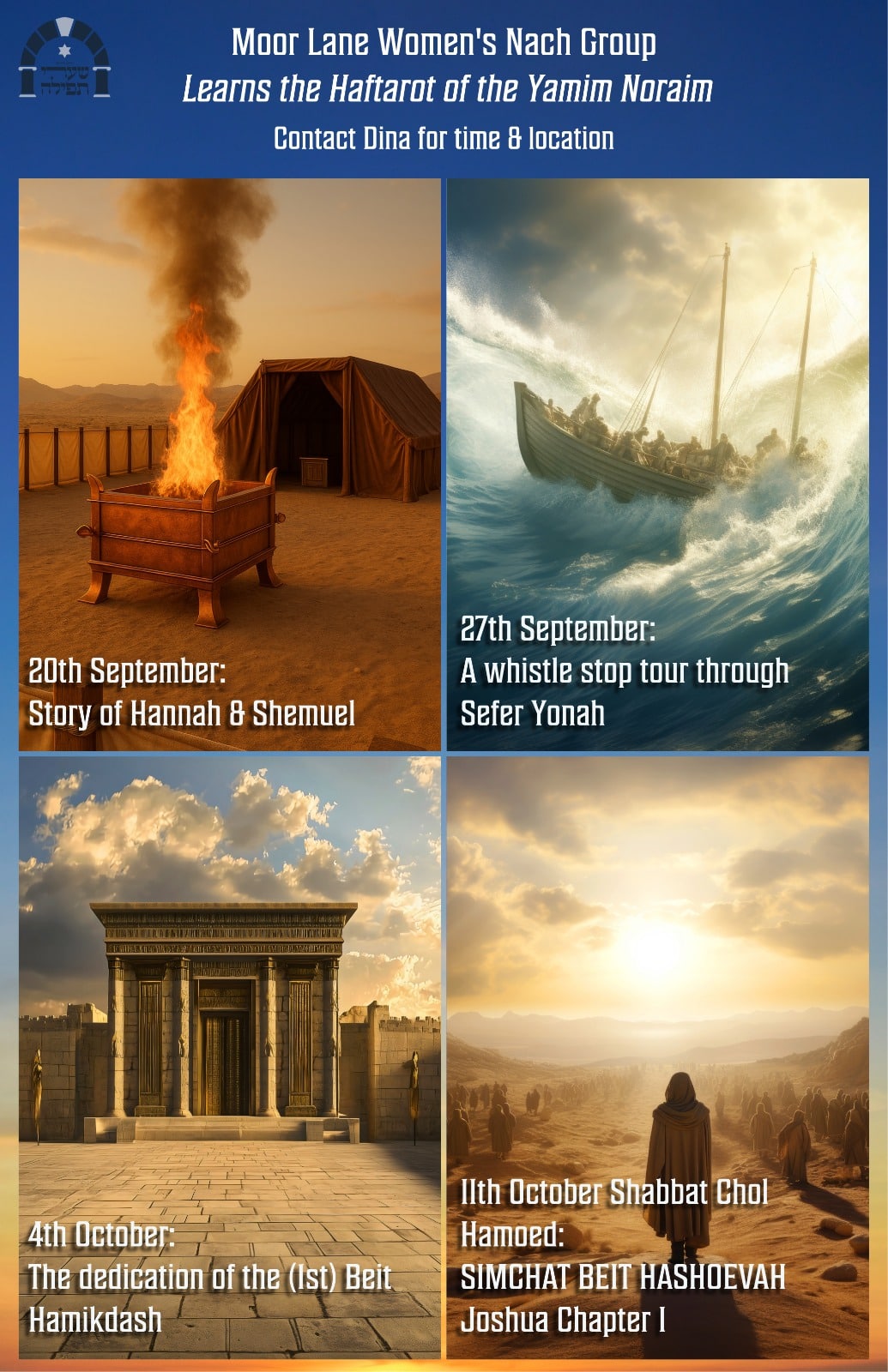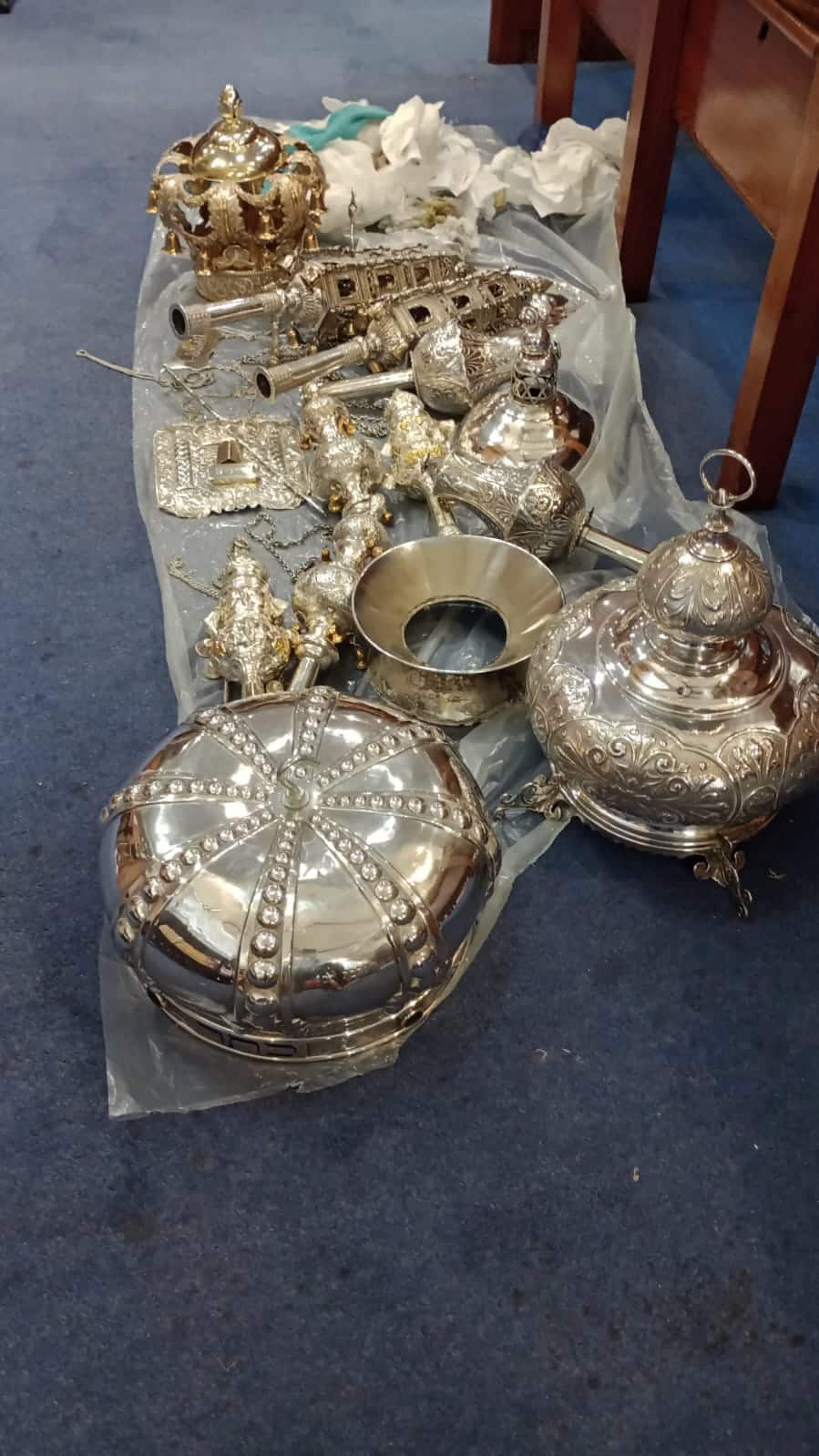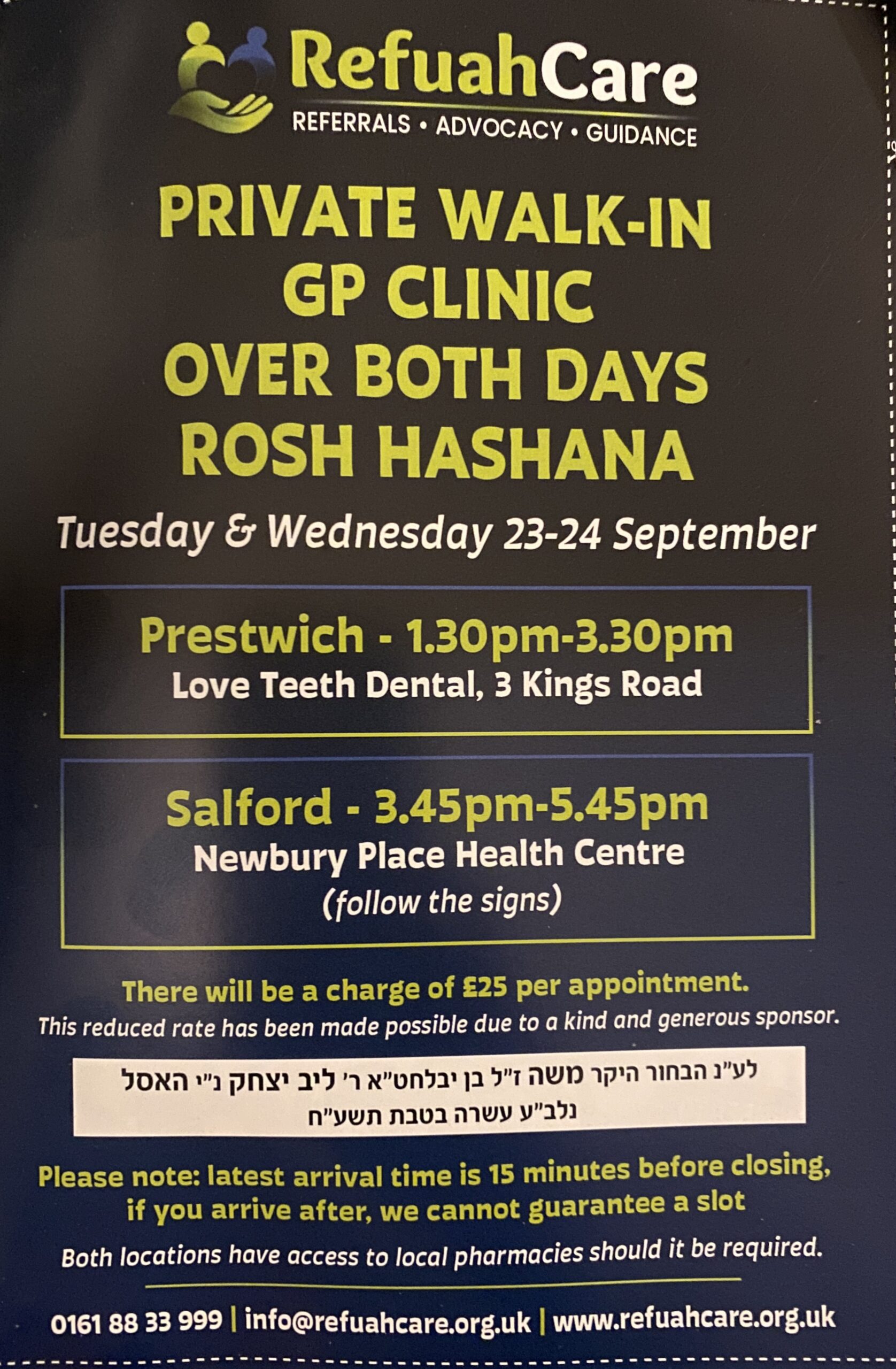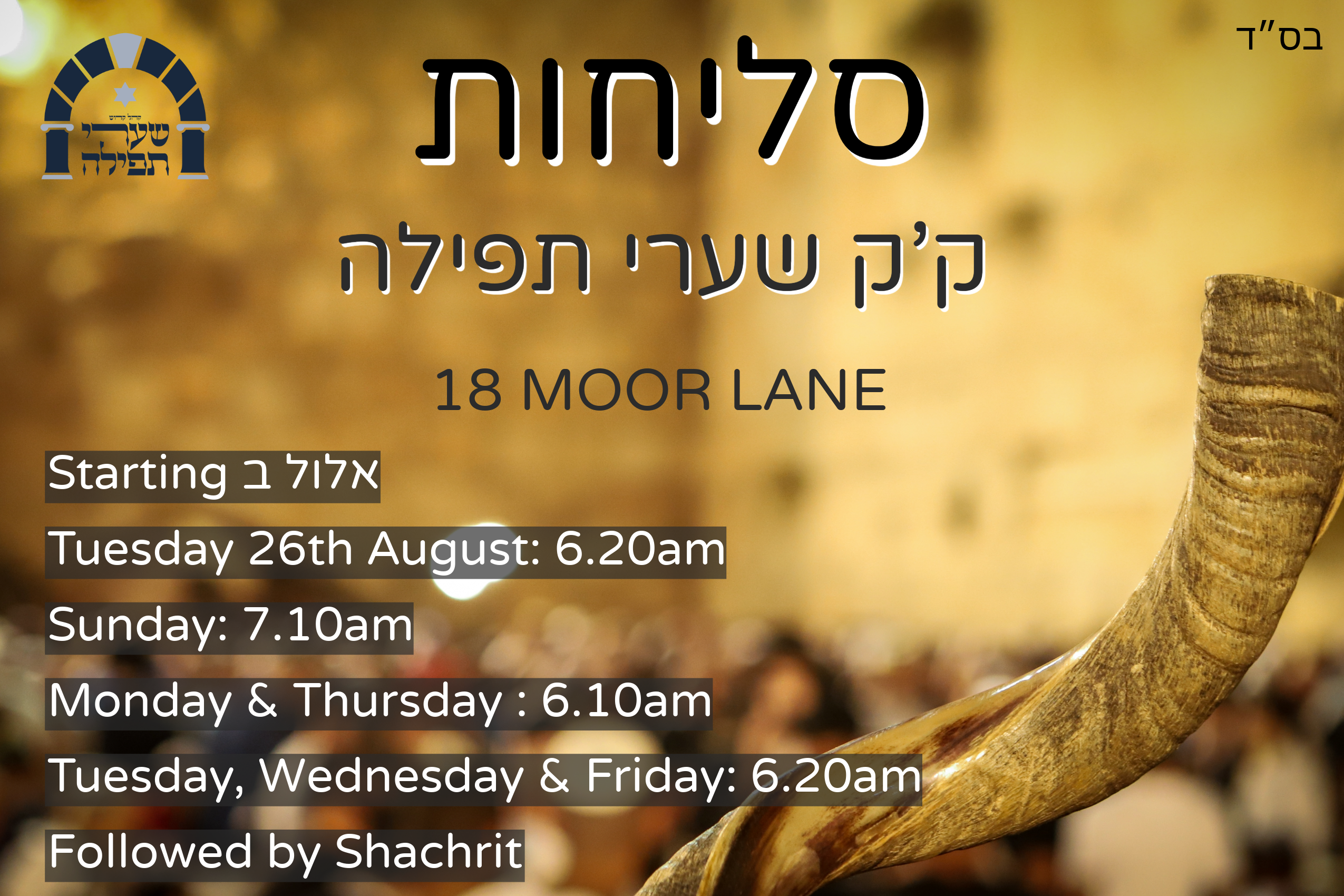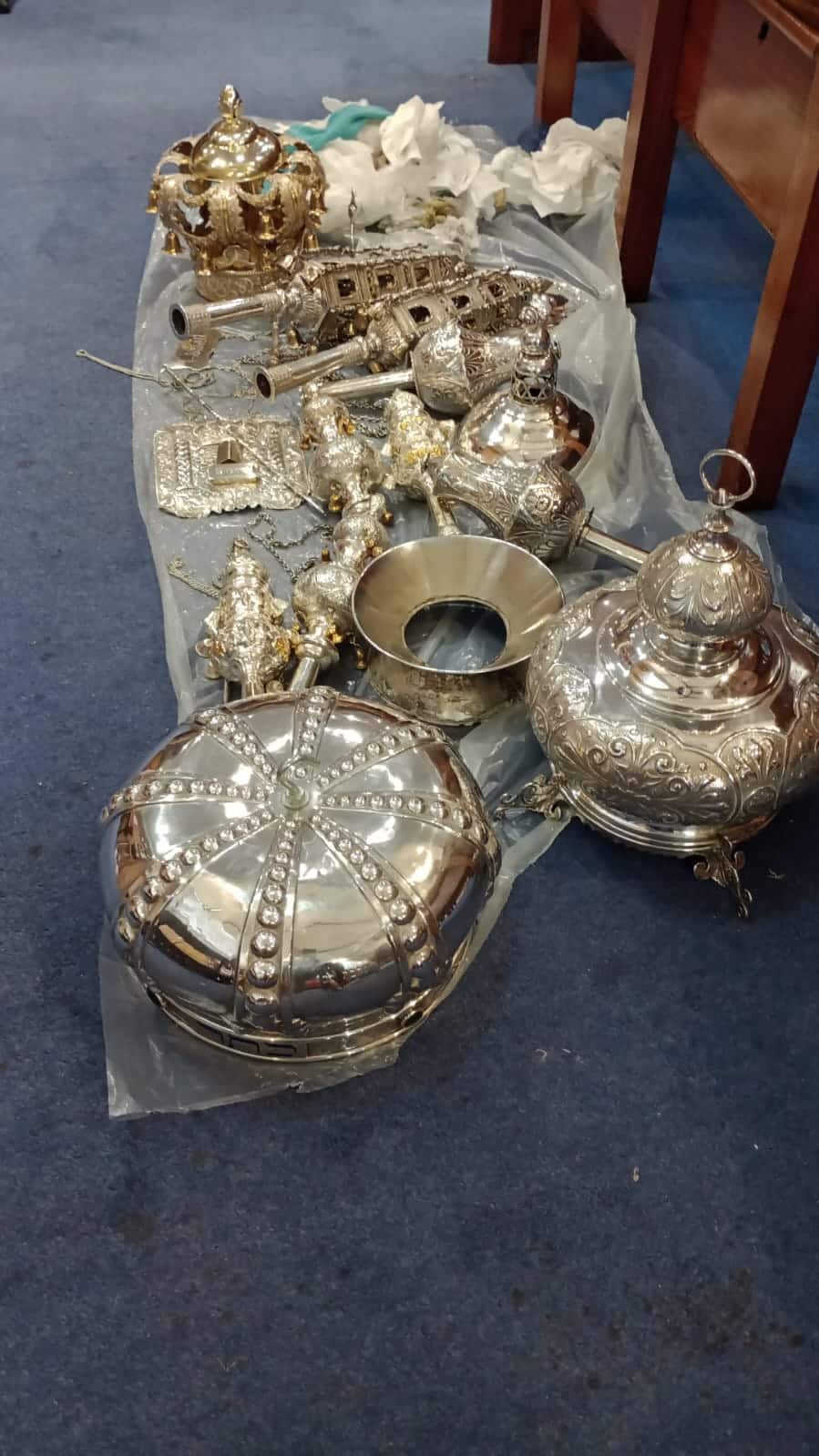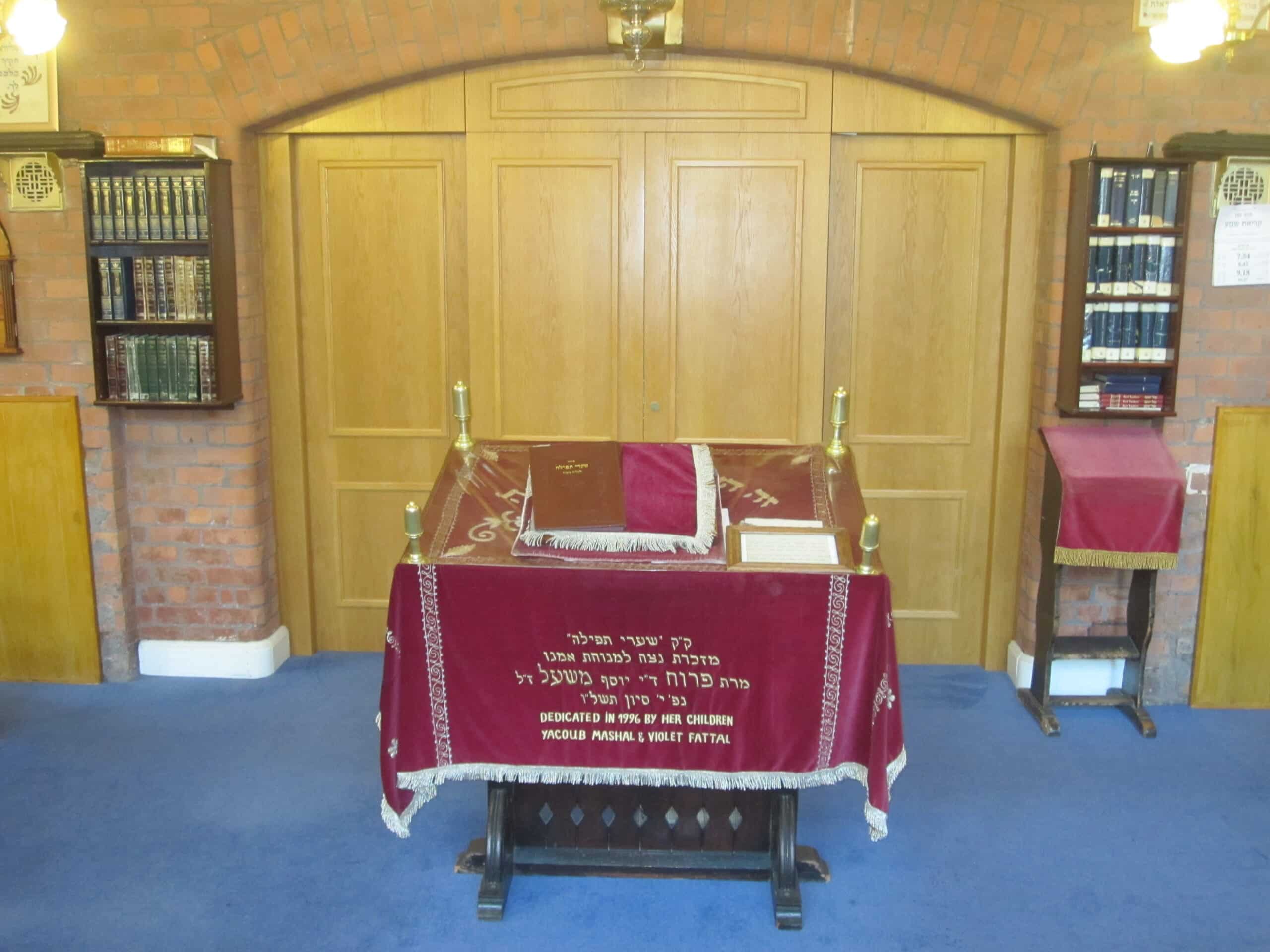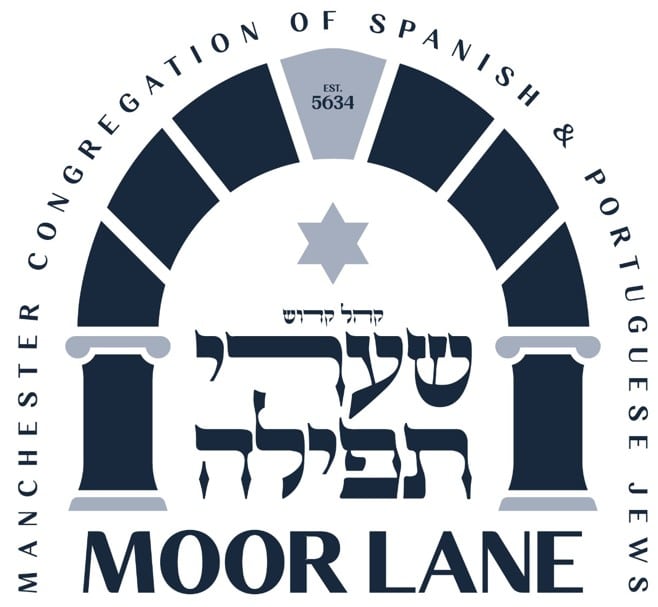גשמים בסוכה
ישנם מקומות, כמו במדינת ניו יורק וסביבותיה, שרגילים לרדת שם גשמים בימי חג הסוכות. וגם בארץ ישראל אירע כמה פעמים שירדו גשמים בחג הסוכות.
ובארץ ישראל, הגשמים בחג הסוכות אינם סימן ברכה, כמו שאמרו רבותינו, למה זה דומה? לעבד שמוזג כוס לרבו, ושפך לו רבו את הכוס על פניו. כלומר, שאינו חפץ במעשיו של העבד. אף כאן, כשיורדים גשמים בחג, כולם יוצאים מן הסוכה ונראה שאין הקדוש ברוך הוא חפץ שישבו בסוכה.
ומכל מקום עלינו לדון, כיצד יש לנהוג כאשר יורדים גשמים בסוכה?
אדם שהיה אוכל בסוכה, ולפתע התחילו לרדת גשמים רבים (באופן, שאילו היה תבשיל עדין מונח על השולחן בסוכה, היה התבשיל מתקלקל מחמת הגשמים. רש”י סוכה כט.), עליו לצאת מן הסוכה ולהכנס לביתו. ושם ימשיך את סעודתו. ואף על פי שאין בפועל תבשיל שמתקלקל על השולחן, ולמשל, אדם האוכל עוגות בסוכה, ואין שם דבר שיתקלקל מחמת הגשמים שאינם חזקים כל כך, גם כן אינו צריך להשאר בסוכה במצב כזה, ועליו להכנס לביתו. (שלחן ערוך סימן תרלט סעיף ה).
ואם תוך כדי הסעודה, בשעה שיושב בביתו, פסקו הגשמים, אין חובה לחזור ולאכול את המשך הסעודה בסוכה, ורק בתורת חומרא, אם ירצה לחזור ולהשלים את הסעודה בסוכה, תבוא עליו ברכה. (יביע אומר ח”ט סימן סג). וכל זה בשאר ימי החג, אבל בליל יום טוב הראשון של החג, יש חובה לחזור ברגע שיפסקו הגשמים, ולאכול בסוכה כזית פת.
וכן הדין לגבי אדם שראה שיורדים גשמים, ולכן התחיל לאכול בביתו, ופסקו הגשמים. שאין עליו חובה לעבור לסוכה ולהשלים שם את הסעודה, אלא גומר את כל הסעודה בביתו. ודין זה אינו שייך דוקא לגבי ירידת גשמים, אלא גם אם היה יושב בסוכה, ולפתע החלה לנשוב רוח עזה שמחמתה החלו נושרים קסמים מהסכך לתוך הסוכה, וקשה לו לסבול את הדבר, הרי הוא רשאי להכנס ולאכול בביתו. (סוכה דף כט.).
מקום שיורדים שם גשמים, אבל בסוכה יש סכך עבה, עד כדי כך שלא יורדים בתוכה גשמים, צריך לאכול בסוכה, ורשאים גם כן לברך “לישב בסוכה” בשעה שאוכלים שם. (חזון עובדיה סוכות עמוד קפה, בשם בכורי יעקב).
הפטור מן הסוכה מחמת ירידת הגשמים, ובכל זאת מחמיר על עצמו ואוכל בסוכה, אינו אלא הדיוט, ואינו מקבל שכר על כך, (הרמ”א סימן תרלט). ואם בירך על האכילה “לישב בסוכה”, ברכתו היא ברכה לבטלה.
היוצא מן הסוכה מפני הגשמים, לא יבעט ויצא, כלומר, לא ינוס בכעס ויצא, אלא יצא בהכנעה, כמו עבד שבא למזוג כוס לרבו, ורבו שפך את המים על פניו, שעל העבד להתנהג בהכנעה ולא בכעס וכדומה.
Rain in the Sukkah
There are certain places, such as New York, where it commonly rains during the holiday of Sukkot. Even in Israel it has happened in the past that rain has fallen during Sukkot.
In the Land of Israel, rain during the Sukkot holiday is an ominous sign, as our Sages taught that this is comparable to a servant who pours a beverage for his master and the master throws the cup in the servant’s face. So too, when it rains on Sukkot and everyone leaves the Sukkah, it is a sign that Hashem does not want us to be sitting in the Sukkah.
Nevertheless, we must discuss how one should behave when it rains in the Sukkah. If one was sitting and eating in the Sukkah and it suddenly begins to rain strongly (to the extent that if a plate of food was before him, the food would get ruined, see Rashi’s commentary on Sukkah 29a), one should exit the Sukkah and return home and continue one’s meal there. Although there might not be an actual plate of food on the table getting ruined, for instance, if one is eating cake and they do not get ruined from such rain, nevertheless, one still need not remain in the Sukkah in this case and one should return home (See Shulchan Aruch Chapter 639, Section 5).
If during one’s meal at home, the rain stops, there is no obligation to continue one’s meal in the Sukkah and doing so is merely a stringency (see Yabia Omer Volume 9, Chapter 63). The above applies on any other day of the Sukkot holiday. However, on the first night of Sukkot, one is obligated to return to the Sukkah and eat a Kezayit of bread there as soon as the rain stops.
Similarly, if one begins to eat at home because he sees that it is raining and then he realizes that the rain has stopped, he need not go out to the Sukkah in order to finish his meal; rather, one may conclude one’s meal at home. This law does not only apply to rain, rather, if one was sitting in the Sukkah and strong winds start gusting suddenly and pieces of the Sechach start falling into the Sukkah and it makes it difficult to remain in the Sukkah, one may finish one’s meal at home (see Sukkah 29a).
If it is raining outside but the Sechach on one’s Sukkah is so thick that the rain does not penetrate the Sukkah, one must eat in the Sukkah and even recite the blessing of “Leeshev Ba’Sukkah.” (Chazon Ovadia- Sukkot, page 185 quoting the Bikurei Yaakov)
If one is exempt from the Mitzvah of Sukkah because of rain and the like and nevertheless acts stringently and eats in the Sukkah anyway is considered a fool and does not receive reward for this (see Rama in Chapter 639). If one recites the “Leeshev Ba’Sukkah” blessing in such a case, this blessing will have been in vain.
If one must leave the Sukkah as a result of rain and the like, one should not kick it on one’s way out; rather, one should leave in a subjugated manner similar to a servant that had a beverage thrown in his face by his master in that he must act in a subjugated manner and not with anger and the like.
בין כיפור לסוכות – דפנות הסוכה
הימים הללו, שבין יום הכפורים לסוכות, הם ימים מקודשים, ואנו עוסקים בהם במצות הסוכה, ללכת מחיל אל חיל. ואמרו רבותינו, כי ארבע הימים שבין יום הכפורים לחג הסוכות, נזכרים ונעשים כימים המקודשים, והם כימי חול המועד, ובהם עוסקים כל ישראל במצוות, סוכה ולולב, ומעשים הללו מעוררים בלב ישראל לאהוב את ה' יתברך, ולשמוח במצותיו, לשמוח שמחה רוחנית אמיתית, לעבוד את ה' בטוב לבב. ובכל הימים הללו אין אומרים “נפילת אפיים” בתפלה, כי הם כמו יום טוב.
אמרו רבותינו, שהסוכה צריכה להיעשות משלוש דפנות וסכך. הדפנות שהם הכתלים (המחיצות, הקירות) של הסוכה, מותר לעשותם מכל דבר שירצה, ובתנאי שתהיינה הדפנות חזקות ויציבות דיין בכדי שתעמודנה היטב בפני הרוח המצויה, לפי שכל שאין הדפנות יציבות בפני הרוח, הרי אינן כשירות למצות סוכה.
ולפיכך פסק מרן רבינו עובדיה יוסף זצוק”ל, שאין לעשות דפנות לסוכה מסדינים ויריעות וכדומה, לפי שהם הולכים ובאים עם הרוח, ואפילו בנדנוד קל, ולכן אינם נחשבים כדפנות שעומדות ברוח מצויה. ואפילו אם מותח את הסדינים היטב, וקשרם בחזקה לעמודי הסוכה כדי שלא ינועו עם הרוח, אין להתיר, מפני שלפעמים מתרופפים הקשרים על ידי הרוח ומתנודדים הסדינים ונמצאת הסוכה פסולה, והיושב בתוכה אינו יושב בסוכה, ואם בירך “לישב בסוכה” הרי ברכתו ברכה לבטלה.
ואף שיש מהאחרונים שכתבו, שכל שהסדינים אינם מתנודדים הרבה עם הרוח (כשלושה טפחים מצד לצד) עדיין הדפנות כשירות, מכל מקום מדברי הראשונים נראה שאפילו בנדנוד מועט כבר נפסלת הסוכה. וכן היא הסכמת רוב פוסקי זמנינו, ומהם הגאון רבי שלמה זלמן אוירבך זצ”ל והגאון רבי יוסף חיים זוננפלד זצ”ל. גם הגאון רבי משה פיינשטיין זצ”ל כתב, שאין להקל לבנות סוכות כאלו עם יריעות בד או פלסטיק, והוסיף שמה שאנו רואים בארצות הברית (מקום מושבו של הגר”מ פיינשטיין) שמוכרים סוכות שדפנותיהן עשויות מיריעות, פשוט שלא היה זה על פי הוראת חכם, כי אין להשתמש בסוכות אלו.
דבר המקבל טומאה
מה שכתבנו, שדפנות הסוכה מותר לעשותם מכל דבר שירצה, הכוונה היא, אפילו לעשות דפנות מכלים, כגון ארון, ארגז וכיוצא בזה. ואף על פי שארגז הוא “כלי”, ומכיון שהוא כלי, הרי הוא ראוי לקבל טומאה, (כלומר, אם נגע בכלי אדם טמא, גם הכלי יכול לקבל טומאה). וכל דבר שראוי לקבל טומאה אסור לסכך בו את הסוכה. מכל מקום, את דפנות הסוכה מותר לעשות גם מדבר המקבל טומאה.
כלומר, את הסכך של הסוכה, יש לעשות רק מדבר שאינו מקבל טומאה. אבל את דפנות הסוכה, מותר לעשות גם מכלי, או דבר אחר, שמקבלים טומאה.
מעמיד – אזיקונים
ומכל מקום אותו חלק בדפנות הסוכה שהסכך מונח עליו, (כלומר, החלק העליון של הדופן), הרי הוא נקרא, “מעמיד הסכך”. שהסכך עומד עליו. ואת “מעמיד הסכך” יש לעשות לכתחילה מדבר שאינו מקבל טומאה. (מפני שחששו רבותינו שמא יבוא לסכך בדבר שמעמיד את הסכך). ולכן אם עשה דופן לסוכה מדבר המקבל טומאה, כגון ארגז עץ או צינורות של ברזל (שגם הם מקבלים טומאה), טוב לתת נסר של עץ על גבי הדופן או הצינורות, מארבע צידי הסוכה, באופן שהסכך ינתן על גבי נסר העץ, ולא על גבי דבר המקבל טומאה.
ומטעם זה, נכון להזהר לכתחילה, שכל דבר שמעמיד או מחזיק את הסכך, לא יהיה מדבר שמקבל טומאה. ולכן נכון להזהר שלא לקשור את הסכך לסוכה באמצעות “אזיקונים”, כדי שהסכך לא יעוף מהסוכה ברוח מצויה. אולם אם שם את האזיקונים רק כדי שאם תגיע רוח סערה שאינה מצויה הסכך לא יעוף, יש להקל.
The Walls of the Sukkah
The days between Yom Kippur and the Sukkot holiday are indeed holy ones during which we are involved with the building of the Sukkah in order to go from strength to strength. Our Sages teach us that the four days between Yom Kippur and Sukkot are treated as sanctified days and are similar to the days of Chol Ha’Moed. During these days the entire Jewish nation is involved in the Mitzvot of Sukkah and Lulav and these actions arouse the Jewish nation’s love for their Father in Heaven and to rejoice in His commandments thus bringing about service of Hashem with a gladdened heart. During these days, Tachanun (supplication) prayers are omitted from all prayer services, for these days are tantamount to Yom Tov.
A Sukkah must consist of three walls and Sechach (roof of the Sukkah made from objects which grow from the ground). The walls of the Sukkah may be made from any material one wishes as long as they are strong and sturdy enough to withstand an ordinary wind (breeze); if the walls are not sturdy enough to withstand such a wind, they are not valid for the Mitzvah of Sukkah.
Therefore, Maran Rabbeinu Ovadia Yosef zt”l rules that one should not use sheets, fabrics, and the like for the walls of the Sukkah, for they flap back and forth in the wind; even a small movement renders them unfit to withstand an ordinary wind. Even if one stretches these sheets until they are taut and then ties them very well to the poles of the Sukkah so that they do not move in the wind, this is still unacceptable, for sometimes, the knots come loose as a result of the wind and the sheets begin to sway and this renders the Sukkah invalid, in which case anyone who sits in it is in essence not sitting in a Sukkah and any “Leeshev Ba’Sukkah” blessings recited upon it are blessings in vain. Although there are those who maintain that as long as the sheets do not sway very much in the wind (approximately three Tefachim or twenty-four centimeters from side to side) these walls are still valid, nevertheless, it appears from the words of the Rishonim that even a slight movement invalidates the Sukkah. This is indeed the consensus among most modern-day Poskim including Hagaon Harav Yosef Chaim Zonnenfeld zt”l and Hagaon Harav Shlomo Zalman Auerbach zt”l. Similarly, Hagaon Harav Moshe Feinstein zt”l writes that one may not be lenient and build his Sukkah out of sheets of fabric or tarp and he adds that the fact that such Sukkot are sold in the United States (place of Harav Feinstein’s residence) must not have been done in accordance with the ruling of a Halachic authority, for such Sukkot may not be used.
Material Which is Capable of Becoming Impure
We have written that one may make the walls out of any material one wishes, including vessels, such as closets, chests, and the like. Although these items are vessels and thus are capable of becoming impure (meaning that if an impure person touches the vessel it will consequently become impure as well) and such things may not be used for the Sechach of the Sukkah, the walls of the Sukkah may nevertheless be made of things which are capable of becoming impure.
This means that the Sechach of the Sukkah must be made only from material incapable of becoming impure but the walls of the Sukkah may be made from vessels of any other item which is capable of becoming impure.
Supports- Plastic Zip Ties
Nonetheless, the part of the wall of the Sukkah where the Sechach rests is considered “the Sechach’s support” and should preferably be made of materials which are not capable of becoming impure due to an edict of our Sages who were concerned that perhaps one will come to use such materials as Sechach. Thus, if the walls of the Sukkah are made of materials that are capable of becoming impure, such as closets, metal poles, and the like, it is preferable to place a wooded beam on top of the walls or poles around all four sides of the Sukkah in such a way that the Sechach will rest on the wooden beams as opposed to the material which is capable of becoming impure.
For the above reason, it is preferable that anything that supports or holds the Sechach in place not be made of materials capable of becoming impure. Thus, one should preferably not tie down the Sechach with plastic zip ties so that it does not fly away. However, if the Sechach is sturdy enough as is and one is merely tying it down in order to prevent it from flying away in extremely strong winds, there is room for leniency in this regard.
דין הסכך בסוכה והקישוטים הנתלים בסכך
מצוה ליַפּוֹת את הסוכה
מצוה גדולה ליַפּוֹת את הסוכה ולנאותה כמה שאפשר, להכניס לתוכה כלים נאים, ולהאירה באור יקרות. וכתבו המקובלים, שעל ידי כיבוד הסוכה באור יקרות, יזכה האדם שנפשו תשב במנוחה בגן עדן, וכפי ערך מה שיקיים את המצוה בכוונה טובה באופן הנאות, כך יעשה לו שָם סוכה לנשמתו. ׁכמו שמבואר בזהר הקדוש פרשת פנחסׂ. ובהציע הכלים הנאים שיש לו' והמצעות הנאות בסוכה, יקשור לו האל יתברך כמה חופות בגן עדן העליון. ובכל זאת, יש לדעת, שלעתים מתוך הכוונה הטובה לקשט את הסוכה, הסוכה נפסלת. לכן יש להיות בקי בדינים המובאים כאן, לנהוג על פי ההלכה.
התנאים שיהיה הסכך כשר
נאמר בתורה (דברים טז.) “חג הסוכות תעשה לך באספך מגרנך ומיקבך”. ולמדו מכאן רבותינו (במסכת סוכה דף יב.), שיש לסכך את הסוכה, בדברים הנאספים מן הגורן ומן היקב, כלומר פסולת הגורן והיקב, שהם קש ותבן וזמורות ואשכולות ריקים מן הענבים, וכיוצא בהן.
וכן נאמר בספר נחמיה (פרק ח), שאמרו ראשי העם אל בני ישראל, “צאו ההר, והביאו עלי זית ועלי עץ שמן ועלי הדס ועלי תמרים ועלי עץ עבות, לעשות סוכות ככתוב”. ומכאן למדו רבותינו שצריך שיהיו לסכך שמסככים בו שלשה תנאים.
א. צריך שיהיה גידולו מן הארץ. ב. צריך שיהיה תלוש ולא מחובר לקרקע. ג. צריך שיהיה דבר שאינו ראוי לקבל טומאה. כמו פסולת הגורן והיקב, שבאה מן הארץ, והיא תלושה ואינה מחוברת לקרקע, וכן אינה ראויה לקבל טומאה, שכל דבר שאינו “אוכל” או “כלי”, אינו ראוי לקבל טומאה. ולמשל, אם גופו של מת, נגע בענף של דקל, אין הענף מקבל טומאה, אבל אם נגע גופו בכלי עץ, הרי הכלי מקבל טומאה. ולכן אין לסכך בכלי. (ואפילו אם נשבר הכלי, אין לסכך בשבריו).
ולפיכך אסור לסכך את הסוכה בכל מיני מתכות, שהרי אין גידולם מן הארץ. וכן אין מסככים בענפי אילן המחובר לקרקע, שאין לסכך אלא בדבר התלוש מן הקרקע. וכן אין מסככים בכל מיני אוכלים, כגון פירות, מפני שהם ראויים לקבל טומאה, וכן אין מסככים בכלים, אף על פי שהם עשויים עץ, מפני שהם ראויים לקבל טומאה, ואפילו אם סיכך בסכך כשר, אלא ששם עליו סכך פסול, הסוכה פסולה. ולכן אם בנה סוכה כשירה, אבל היא נמצאת תחת מרפסת של שכן וכדומה, ודאי שסוכה זו היא פסולה.
דין קשוטי נייר
הנייר אין מסככים בו, ואפילו הוא עשוי מעץ, מפני שנשתנתה צורתו לגמרי, ואינו נחשב לדבר שגידולו מן הארץ. ולכן, הקישוטים שנוהגים לתלות תחת סכך הסוכה, בכדי ליפות את הסוכה, הרי הם עלולים לפסול את הסוכה מפני שהם אינם סכך כשר.
לכן כתב מרן רבינו עובדיה יוסף זצ”ל, שצריך להקפיד לתלות את קישוטי הסוכה שתחת הסכך, באופן שיהיו צמודים לסכך, ותלויים בתוך ארבעה טפחים לסכך, (שהם כשלושים ושניים סנטימטר), שאם הם יורדים למטה, ליותר ממרחק של שלושים ושנים סנטימטר מהסכך, יש חשש פן יפסלו את הסוכה כאמור, אבל כשהם בתוך ארבעה טפחים, בטלים הם לגבי הסכך, ואין כל חשש שיפסלו את הסוכה, אפילו אם הם גדולים מאד.
ולסיכום: יש לסכך את הסוכה, בדבר שגידולו מן הארץ, ושהוא תלוש, ושאינו מקבל טומאה. ואם רוצים לקשט את הסוכה בקישוטי נייר, רשאים לעשות כן, אך יש לתלות את הקישוטים באופן שיהיו צמודים לסכך, ולא יהיו גדולים ויורדים מן הסכך יותר משלושים ושניים סנטימטר, שאז, הם עלולים לפסול את הסוכה
Laws of the Sechach (Roof) of the Sukkah and Decorations Hung from the Sechach
The Mitzvah to Beautify the Sukkah
It is a great Mitzvah to beautify the Sukkah and decorate it as much as possible by adorning it with beautiful vessels and illuminating it with fine lights. The Mekubalim write that by honoring the Sukkah with fine lighting, one’s soul will merit resting peacefully in Gan Eden; one’s performance of this Mitzvah with pure intention and in a beautiful manner will directly impact the kind of Sukkah that will be made for one’s soul in Gan Eden, as the holy Zohar (Parashat Pinchas) states. When one places his fine vessels and linens in the Sukkah in order to adorn it, Hashem shall prepare the individual several canopies in the celestial Gan Eden. Nevertheless, we must point out that sometimes as a result of one’s good intention to decorate the Sukkah, one may inadvertently invalidate the Sukkah. One must therefore be fluent in the laws discussed in this segment in order to know how to observe this Mitzvah according to Halacha.
Conditions for Valid Sechach
The Torah states (Devarim 16): “You shall make for yourself a holiday of Sukkot when you gather [the produce] from your granaries and wineries.” Our Sages learned from here (Sukkah 12a) that one should make the Sechach out of things gathered from granaries and wineries, i.e. the waste from granaries and wineries, such as straw, hay, twigs, or empty clusters of grapes and the like.
Similarly, the book of Nechemia (Chapter 8) states that the leaders of the nation told the Jewish people: “Go out to the mountain and bring olive branches, branches of an oily tree, myrtle branches, palm branches, and branches of a thick tree in order to make Sukkot as it is written.” Our Sages learned from here that in order to be valid, the Sechach must meet three requirements:
It must grow from the ground, it must be detached from the ground, and it must be something that is incapable of becoming impure (as we have already discussed), similar to the waste of granaries and wineries which grows from the ground, is detached from the ground, and is not capable of becoming impure, for anything which is neither a vessel or a food is incapable of becoming impure. If, for instance, a corpse would come in contact with a palm branch, the palm branch would not become impure. However, if it would come in contact with a wooden vessel, it would become impure, and it is thus invalid for use as Sechach (even if the vessel has broken, one may still not use the broken pieces as Sechach).
Thus, one may not use any type of metal as Sechach, as metal does not grow from the ground. Similarly, one may not use tree branches that are attached to the ground, for only things that are detached from the ground may be used as Sechach. Additionally, one may not use foods or vessels (even if they are made from wood) as Sechach, for these things are capable of becoming impure. Even if one covers his Sukkah with valid Sechach and only places invalid Sechach on top of that, the Sukkah is invalid. Therefore, if one builds a valid Sukkah but it is under a neighbor’s balcony, the Sukkah is most certainly invalid.
Paper Decorations
Paper may not be used as Sechach although it is a derivative of wood, since its appearance has changed completely and it is no longer considered something that grew from the ground. Thus, decorations hung from the Sechach in order to beautify the Sukkah can very well invalidate the Sukkah, for they are invalid for use as Sechach.
Therefore, Maran Rabbeinu Ovadia Yosef zt”l writes that one should take care to hang such decoration within four Tefachim (approximately thirty-two centimeters) of the Sechach, for in this way, they are considered part of the Sechach and they in no way invalidate the Sukkah, even if they are quite large. However, if the decorations droop below four Tefachim of the Sechach, there is concern for the invalidation of the Sukkah, as we have explained.
Summary: For the Sechach (roof) of the Sukkah, one must use a material which grows from the ground, is no longer attached to the ground, and which is incapable of becoming impure. If one wishes to adorn one’s Sukkah with paper decorations (or any other material for that matter), one may do so but one must make sure that they are hung in close proximity to the Sechach and do not droop down more than thirty-two centimeters (12.6 inches) from the Sechach, for this invalidates the Sukkah.
